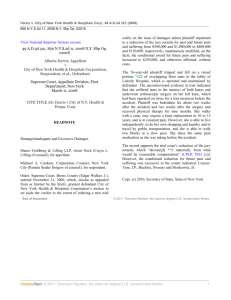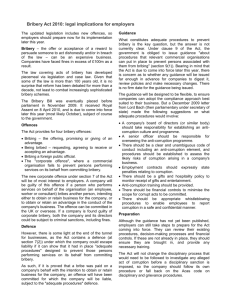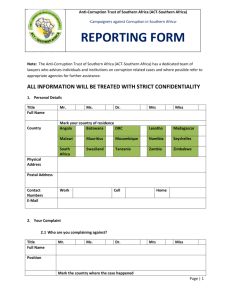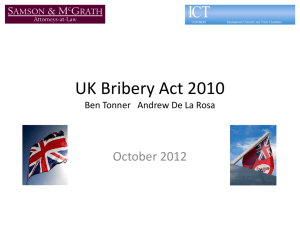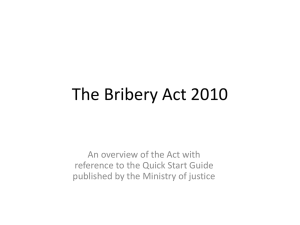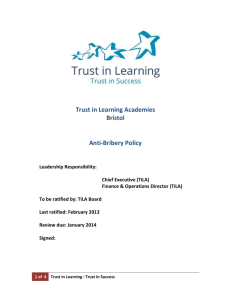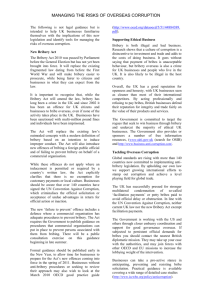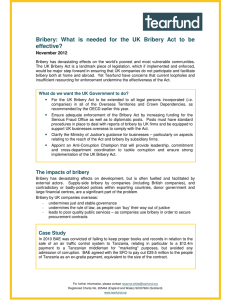Example of a Boolean Negotiation History
advertisement
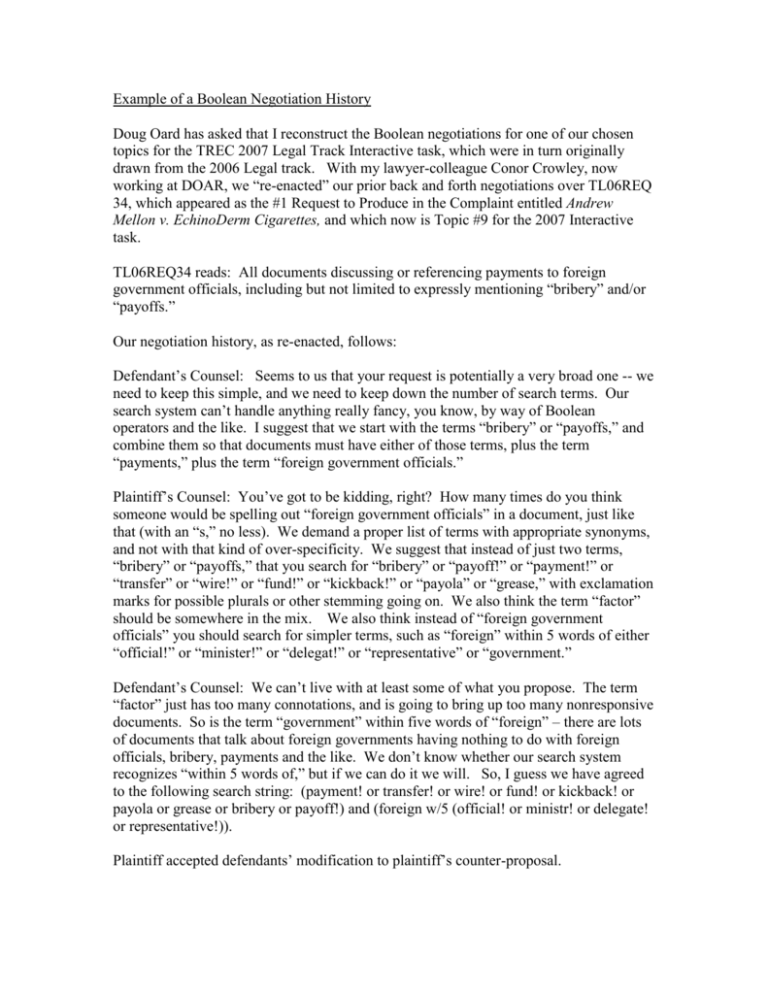
Example of a Boolean Negotiation History Doug Oard has asked that I reconstruct the Boolean negotiations for one of our chosen topics for the TREC 2007 Legal Track Interactive task, which were in turn originally drawn from the 2006 Legal track. With my lawyer-colleague Conor Crowley, now working at DOAR, we “re-enacted” our prior back and forth negotiations over TL06REQ 34, which appeared as the #1 Request to Produce in the Complaint entitled Andrew Mellon v. EchinoDerm Cigarettes, and which now is Topic #9 for the 2007 Interactive task. TL06REQ34 reads: All documents discussing or referencing payments to foreign government officials, including but not limited to expressly mentioning “bribery” and/or “payoffs.” Our negotiation history, as re-enacted, follows: Defendant’s Counsel: Seems to us that your request is potentially a very broad one -- we need to keep this simple, and we need to keep down the number of search terms. Our search system can’t handle anything really fancy, you know, by way of Boolean operators and the like. I suggest that we start with the terms “bribery” or “payoffs,” and combine them so that documents must have either of those terms, plus the term “payments,” plus the term “foreign government officials.” Plaintiff’s Counsel: You’ve got to be kidding, right? How many times do you think someone would be spelling out “foreign government officials” in a document, just like that (with an “s,” no less). We demand a proper list of terms with appropriate synonyms, and not with that kind of over-specificity. We suggest that instead of just two terms, “bribery” or “payoffs,” that you search for “bribery” or “payoff!” or “payment!” or “transfer” or “wire!” or “fund!” or “kickback!” or “payola” or “grease,” with exclamation marks for possible plurals or other stemming going on. We also think the term “factor” should be somewhere in the mix. We also think instead of “foreign government officials” you should search for simpler terms, such as “foreign” within 5 words of either “official!” or “minister!” or “delegat!” or “representative” or “government.” Defendant’s Counsel: We can’t live with at least some of what you propose. The term “factor” just has too many connotations, and is going to bring up too many nonresponsive documents. So is the term “government” within five words of “foreign” – there are lots of documents that talk about foreign governments having nothing to do with foreign officials, bribery, payments and the like. We don’t know whether our search system recognizes “within 5 words of,” but if we can do it we will. So, I guess we have agreed to the following search string: (payment! or transfer! or wire! or fund! or kickback! or payola or grease or bribery or payoff!) and (foreign w/5 (official! or ministr! or delegate! or representative!)). Plaintiff accepted defendants’ modification to plaintiff’s counter-proposal. Afterword: plaintiff’s counsel appeared to miss asking for the word “bribe” when agreeing to “bribery” as opposed to “bribe!.” Plaintiff’s counsel also could have asked for “consul,” as a synonym for official, as well as any number of other terms (diplomat, ambassador, etc. Defendants’ counsel (i.e., the TREC coordinators) also erred in writing down the term “minister!” as “ministr!” for purposes of conducting a search. This entire negotiation history is of course a simplification of the kinds of issues that could go in a real life negotiation, where one party as a starting proposition believes that particular requests to produce are vague, ambiguous, overbroad, or unduly burdensome, even before getting down to negotiate particular keywords or other ways of searching for relevant documents. Jason R. Baron May 4, 2007


